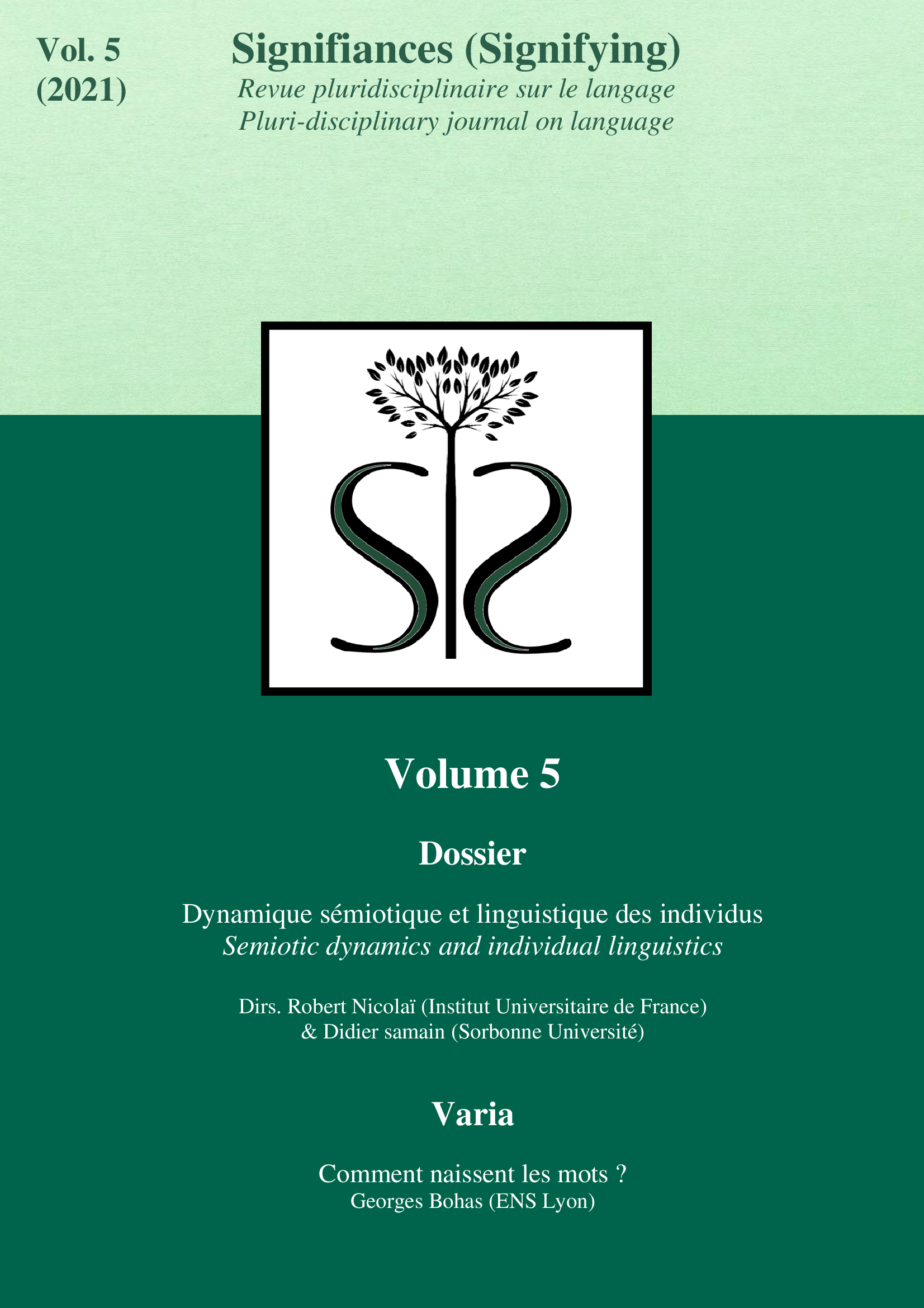From singularity to impersonality: the constitution of a collective actant in enunciative praxis
DOI:
https://doi.org/10.52497/signifiances.v5i1.309Abstract
The concept of "enunciative praxis" covers the operations and the instances allowing the users of a semiotic system to call upon other configurations than those emanating from a system or a virtual structure, and which are available, but under another mode of existence than these virtual structures. The schematic sequence of these operations provides for recovery, inventiveness, deformation, rigidification, singularity. The actantial status of the collective operator is not mentioned in Saussure, but the latter insists on the role of the “mass” of individual executions, which gives rise to the concept of “speaking mass”, that is to say the collective actant of enunciative praxis. In the same perspective, the Greimassian conception leads to the hypothesis of a massive and impersonal collective actant. In particular, we will be led to distinguish the individual and the singular, the plural and the collective, in the characterization of the actants involved in the semiotic manifestations, in their relations with the "absence of person".


